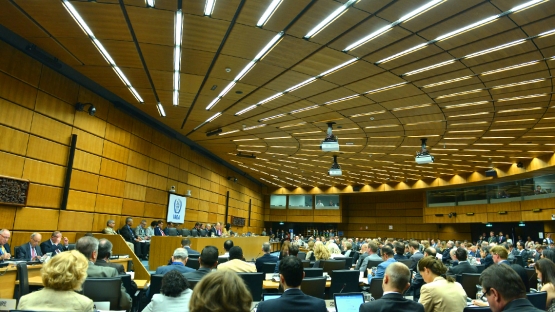Last year the IAEA verified 1,267 nuclear facilities and other locations under 181 safeguards agreements the Agency has in place with States. IAEA inspectors carried out 2,732 inspections on site, up by 7.5% from the year before. These were among the headline numbers of the 2014 Safeguards Implementation Report the IAEA Secretariat presented to the Agency’s Board of Governors today.
The document includes the safeguards findings and conclusions for all States in which the IAEA has implemented nuclear safeguards over the last year. The Report highlights a number of important developments, including the entry into force of additional protocols with India and St Kitts and Nevis, bringing the total number of additional protocols in force to 124 as of the end of 2014.
Almost 1,000,000 nuclear balance reports were verified through more than 2,700 in-field inspections over almost 13,000 working days.
Key findings
For 65 of the 118 States with both comprehensive safeguards agreements and additional protocols in force in 2014, the IAEA found no indication of the diversion of declared nuclear material from peaceful nuclear activities and no indication of undeclared nuclear material or activities. For the other 53 States, the Secretariat found no indication of the diversion of declared nuclear material from peaceful nuclear activities, while evaluations regarding the absence of undeclared nuclear material and activities remained ongoing.



